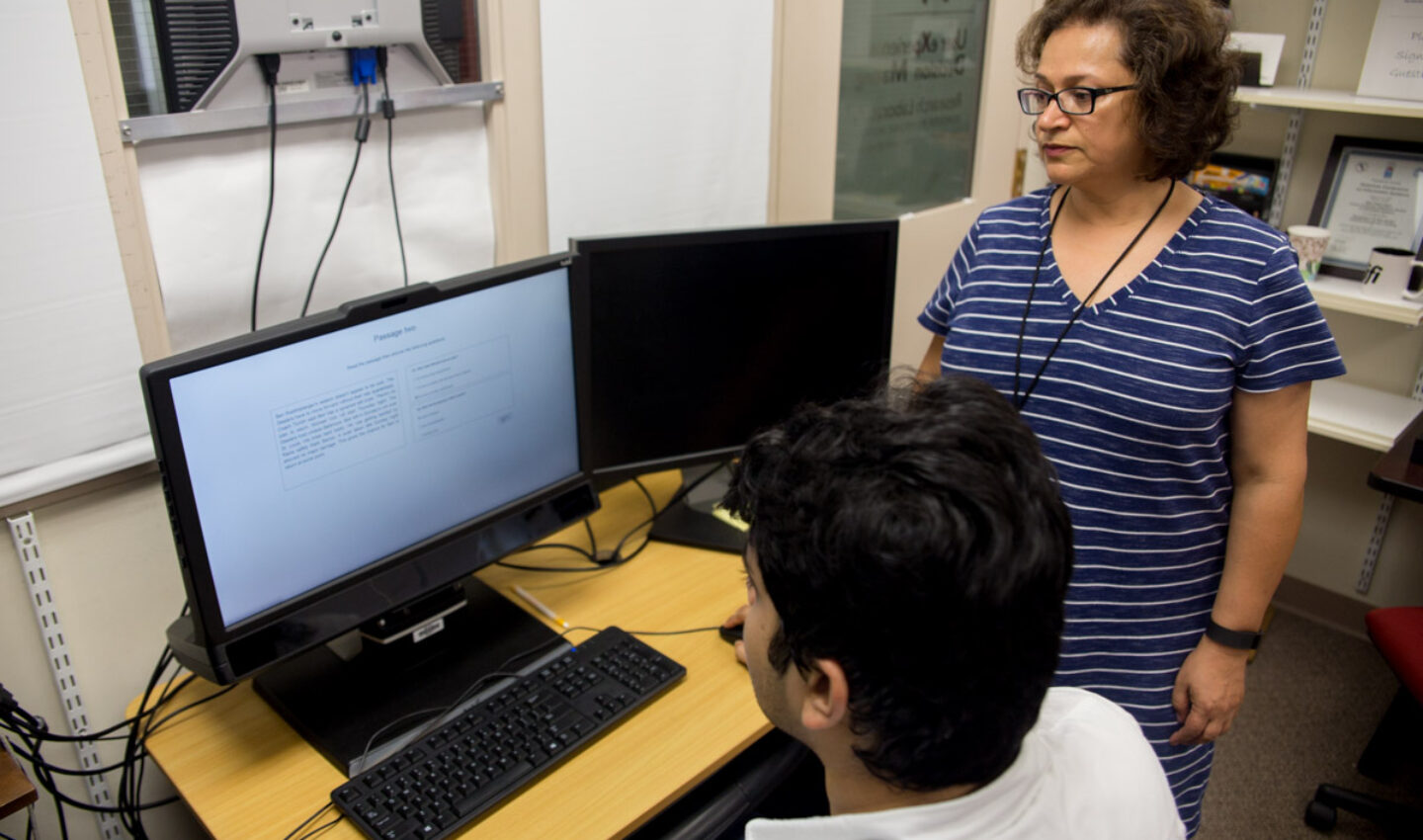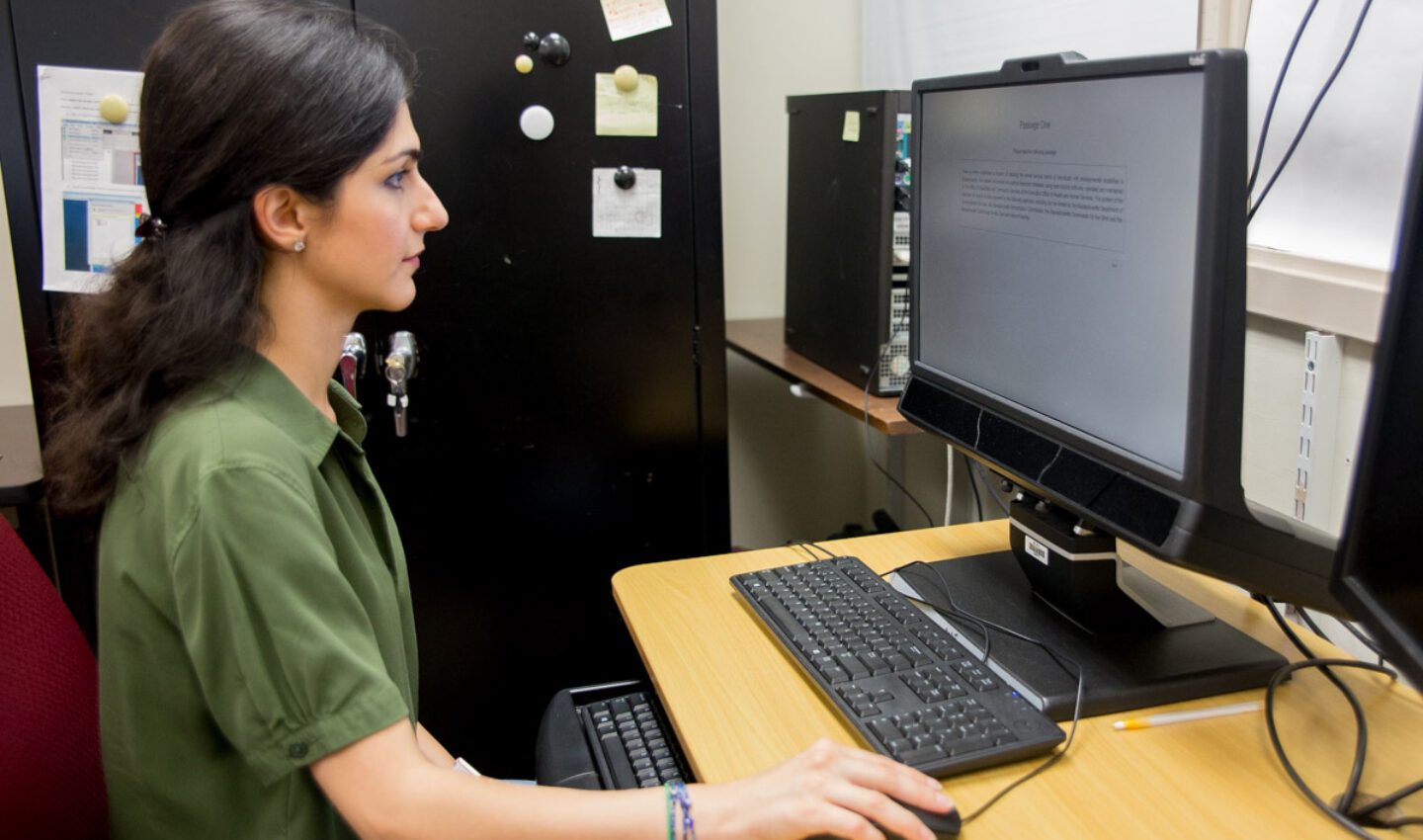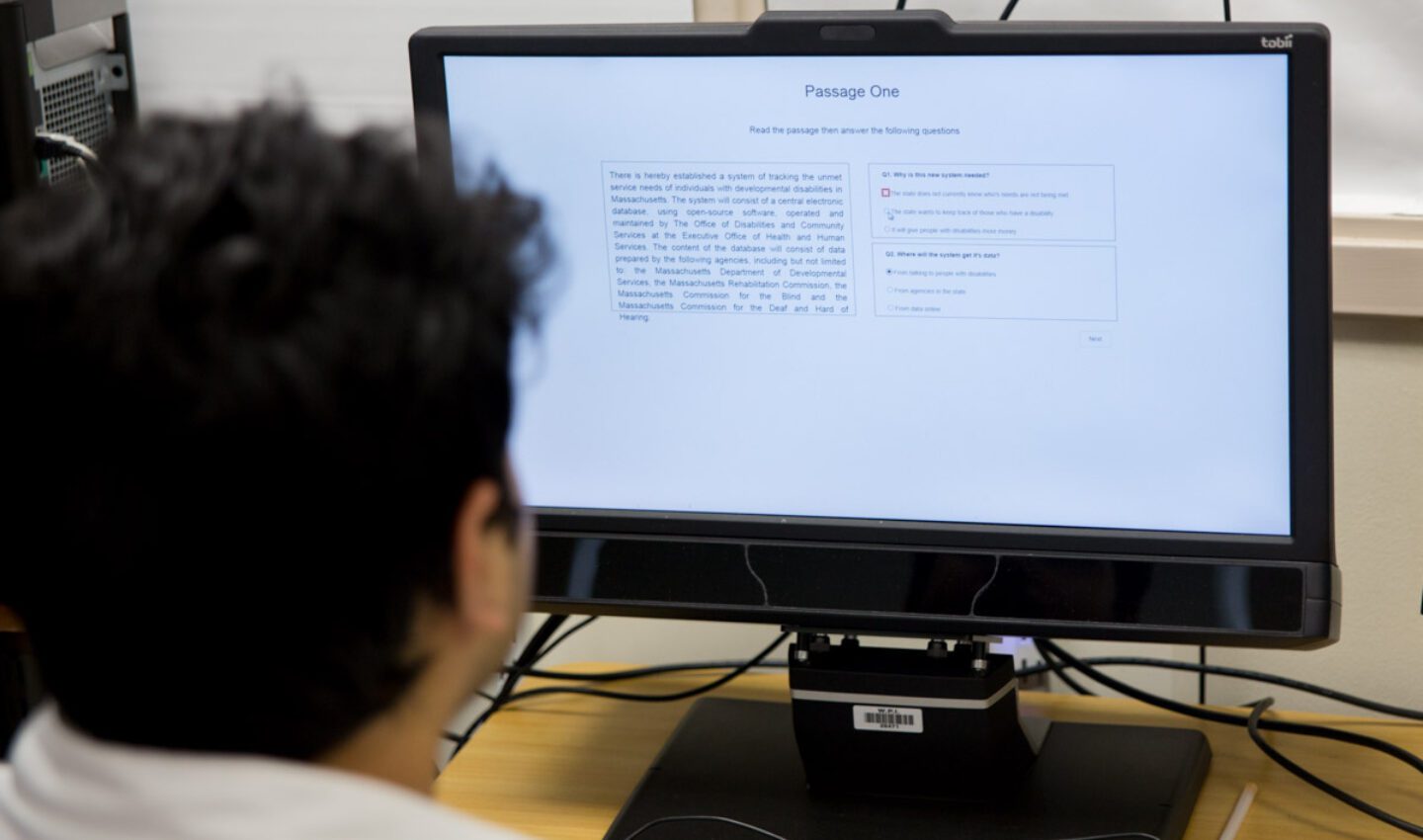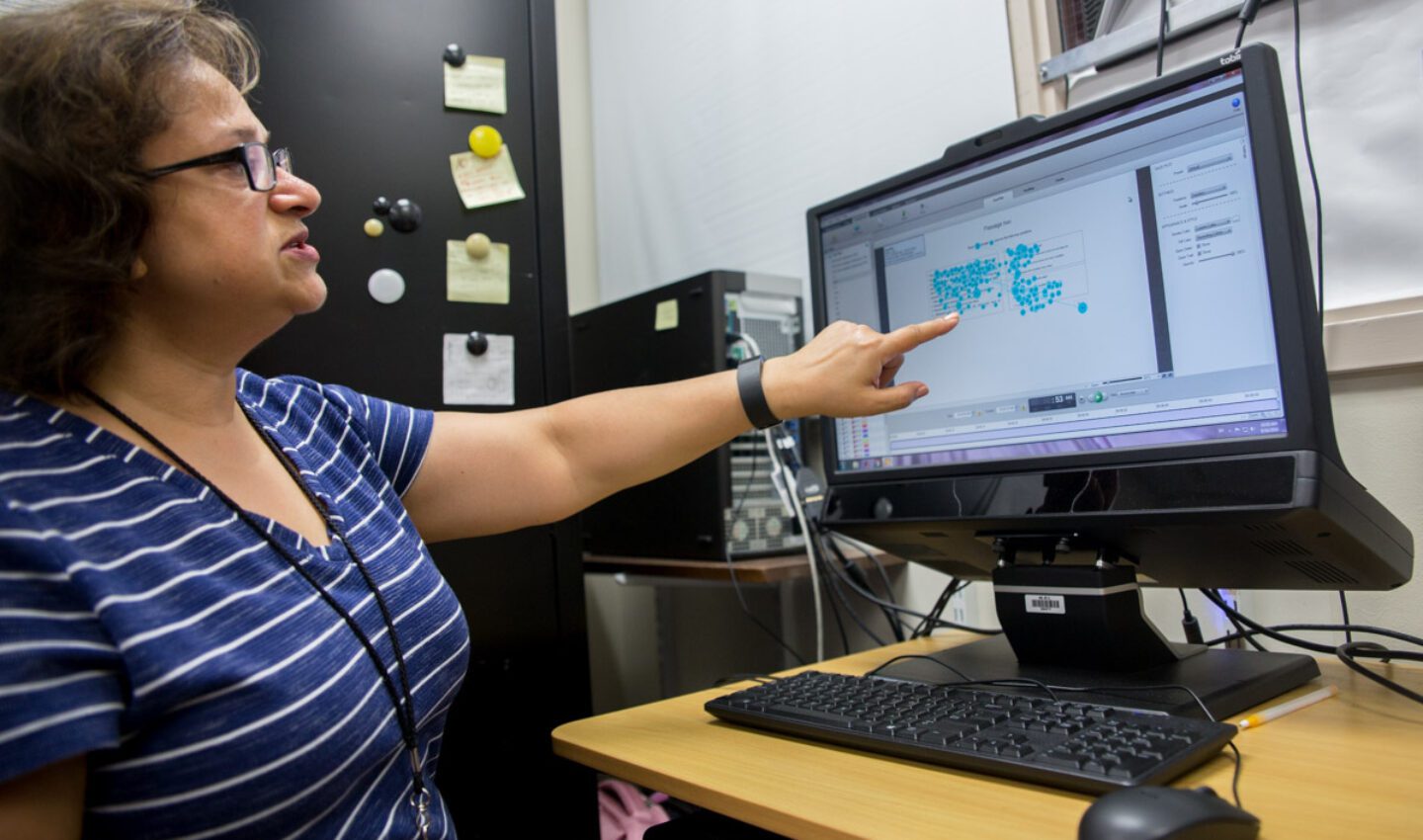UMass Medical School’s Eunice Kennedy Shriver Center is studying if simplifying text for people with cognitive disabilities improves their understanding of the information they read on websites.
“We want to prove that their comprehension increases after they read simplified text,” said John Rochford, MS, director of the Shriver Center’s INDEX program. INDEX provides free information for people with disabilities living in Massachusetts.
Shriver Center researchers are working to improve the lives of people with intellectual and other cognitive disabilities by helping them understand what they read online. This will enable them to make decisions more easily and live more independently.
The Shriver Center is partnering on the project with IBM, UMass Boston, and Worcester Polytechnic Institute (WPI). This project is the first to create clear steps people can follow to simplify text; and to leverage and develop the cognitive computing and natural language processing capabilities of a supercomputer, IBM Watson, to automatically simplify text.
The Shriver Center is recruiting study participants age 17 and older who have an intellectual disability, read at a fifth-grade level or below, and whose first language is English. Researchers are taking text samples from websites, and are preparing simplified versions for testing. Twenty-four participants chosen for the study will each be presented with two typical text passages and two simplified ones. Researchers will then evaluate whether the study participants’ comprehension increases after reading the simplified text.
Text simplification by supercomputers is difficult because they don’t understand context, Rochford said.
Rochford has extensive experience in the area of web accessibility for people with cognitive and physical disabilities. He is a member of the World Wide Web Consortium’s (W3C) Cognitive and Learning Disabilities Task Force, and the W3C’s Low Vision Task Force. The mission of each is to develop standards for making websites easily usable and understandable by people with disabilities.
The Shriver Center is providing expertise in technology accessibility for people with cognitive disabilities, and senior staff who are expert in helping people with intellectual disabilities to learn effectively. The Shriver Center has vast knowledge of intellectual and other cognitive disabilities; and information and communication technology (ICT) accessibility. IBM brings big data-driven computing, technology accessibility for people with disabilities, access to IBM Watson and its engineers, and a digital-innovation platform that includes cognitive-computing apps. UMass Boston brings the project experience with text-simplification technologies, such as natural language processing and deep learning. WPI brings expertise in user-experience design, a user-experience design laboratory, and provides eye-tracking technology for the objective measurement of text comprehension.
“My dream is we will develop tools to simplify text so people can understand it the first time they read it,” Rochford said.




